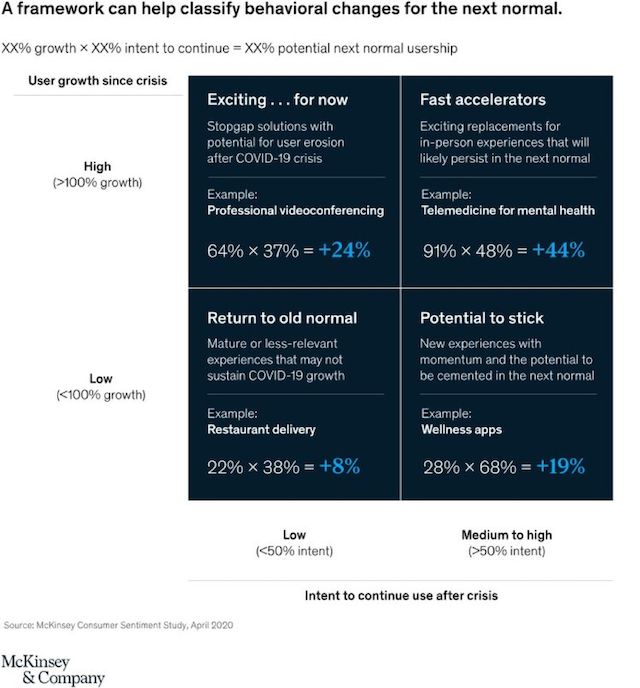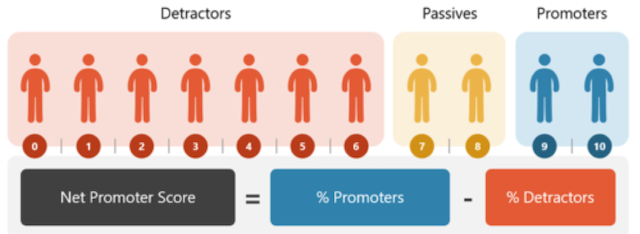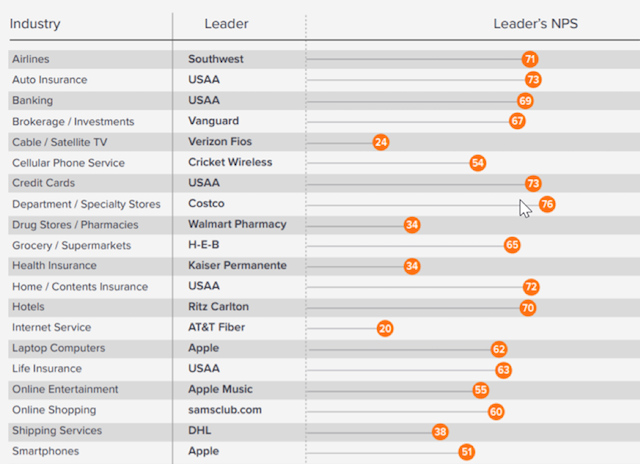Editor’s Note: The DBizInstitute is excited to share this article, written by Dr. Setrag Khoshafian, with our community and in advance of his new book release. Keep an eye on our website as we share additional articles in the coming months written by Setrag, as well as a pending Meet the Author webcast to discuss his new book ‘How to Alleviate Digital Transformation Debt’ expected to air Fall 2021. This article was originally published on CognitiveWorld.com on November 18, 2020.
This article is the seventh installment in a ten-part series on Digital Transformation Debt, post-Covid-19. Part 1 focused on Culture, while Part 2 delved deeper into Operational Excellence and inter-enterprise Value Streams As A Service (VSaaS). Part 3 explained the spectrum of Automation and the shifts post-Covid-19, and Part 4 demonstrated how a new harvest of Low Code/No Code platforms is empowering Citizen Developers. Part 5 highlighted the emerging trend of tools and best practices for Citizen Data Scientist, and Part 6 focused on pragmatic innovation – primarily through the increasingly popular Design Thinking Methodology leveraging digital technologies for innovation.
This article, Part 7, will focus on the most impactful and relevant trend for an essential focus of Digital Transformation: The customer. The customer in the digital era is always connected, tech-savvy, and has high expectations. Customer Experience (CX) Optimization is a critical dimension, especially in the Covid-19 era. CX can be realized through leveraging AI, innovative design, and Automation. DX transformation elucidates the need to shift from bulk marketing, siloed organizations, and ad-hoc experiences to digitally transformed 1:1 connected customer engagement. The combination of AI with digitized end-to-end value streams on behalf of the customer creates this experience through extreme personalization that leads to concrete business results, such as improvements in Net Promoter Scores (NPS).
The post-Covid-19 Mandate for CX
According to McKinsey’s framework for CX, four categories of customer behavioral changes pertain to pre and post-Covid-19, as illustrated in the image below.

There have been several Covid-19 customer experience impact studies. One of these studies showed 72% of consumers preferred to connect via digital channels. There was also a significant increase in choosing digital self-service options – especially for the millennials and GenZ. On the flip side, customer satisfaction and the quality of the experience are of paramount importance: 73% indicated they would sever ties with even one poor experience.
KPMG has been conducting studies on customer experience and had six universal sets of qualities that have impacted customer experience year over year. The following are the six pillars from KPMG:

The new Covid-19 reality of customer experience has prioritized Personalization and Integrity:
“As companies demonstrate their commitment to a safe and secure environment and seek to adapt to customers’ unique circumstances, Integrity and Personalization now play a particularly vital role in driving both advocacy and loyalty.
• Integrity is the strongest driver of Advocacy (NPS) across 18 of the 27 markets, whilst Personalization leads across 8 markets.
• Personalization is the strongest pillar in driving Customer Loyalty in 19 of the 27 markets, whilst Integrity leads across 6 markets.”
Not surprisingly, being an autonomic enterprise in motion with effective Responsiveness, agility, and anti-fragility allows organizations to better cope with the Covid-19 challenges.
Optimizing the Customer Experience: The NPS

You have probably been asked to take part in a short survey after using a product or a service and been given a question such as this: On a scale of 1-10, would you recommend the product/service to someone else (e.g., a friend, a relative, or a colleague)? The NPS is calculated based on the answer to this simple survey question. Introduced by Frederick F. Reichheld in 2003, it is fundamentally a survey about a customer’s willingness to recommend a product or company to their network of friends and acquaintances. Promoters are those who scale 9-10. The score is the difference between promoters and detractors (0-6). What should the scores be? As indicated here, “50 and above is excellent, and 70 and above is the best of the best.” Here are some of the leaders by industry:

The Post-Covid-19 Customer Experience Shifts
There are significant shifts in customer experience optimization – especially in the Covid-19 era. The new generation of customers is quite tech-savvy as they leverage social media extensively and expect instant change. They also want to be treated differently, based on their history, background, or situation. As noted above, Integrity and Personalization are the top requirements. The following illustrates the shifts from traditional to post-Covid-19, (it also highlights the DX technologies that are leveraged for each shift):

There is no doubt about it: In the Covid-19 era, Digital Technology has become an indispensable tool for driving customer engagement. For many companies, effective digital solutions build B2C, B2B, and B2B2C relationships. Technology fills where legacy or manual systems could not, allowing businesses to create personalized and intelligent, user-friendly journeys for a wide range of consumers.
Integrity
The crux of integrity is trust between the enterprise and the customer. Integrity spans honesty, delivery on promises, high moral principles, and ethical behavior. The old norm of being primarily profit-focused is giving way to more environmentally socially responsible actions.
While customers often do not have visibility to the company’s Culture, the behavior and Integrity of enterprises are manifestations of their internal organizational structure. We covered cultural transformation in the first part of this series. Virtual meetings and virtual presence have had an equalizing and flattening effect on most organizations. The Covid-19 pandemic provides a robust opportunity for organizations to re-assess their rigid structures and flatten their organizations.
Technologies: Integrity is primarily cultural, but several digital technologies could assist in the Post-Covid-19 era. These include Virtualization, digitization of policies and value streams, as well as Automation. In inter-enterprise interaction, decentralization technologies such as Blockchain can play a pivotal role. We will cover this in Part 9 of the series.
Personalized
The new generation of customers, especially Millennials, are increasingly tech-savvy and digitally chatty. In the Covid-19 era, they have become even chattier! With their mobile and connected devices, they are active and continuously engaged through social interactions. Above all, they are demanding experiences that are contextual, meaningful, instantaneous, and entertaining. Furthermore, social networking channels have given them a powerful voice – the voice of the network – allowing them to instantly provide feedback (good and bad) and share ideas about products, services, and companies.
Different customers would like to be treated differently: Through useful, meaningful interactions, offers, or decisions on their behalf that are specifically relevant to their context- that is the crux of personalization.
Technologies: Artificial Intelligence with Predictive and Machine Learning algorithms is a critical enabler for Personalization. Increasingly Citizen Data Scientists can achieve Personalization objectives – primarily through next-generation Customer Relationship Management (CRM) platforms.
Omnichannel
Omni means “all-encompassing.” In the context of Customer Experience Optimization, it means supporting different channels and all modes of interactions between a service or solution provider and the customer consistently. This means the customer can interact via a browser, mobile device, service representative, IVR (interactive voice response), or other channels. This “consistency” means that the customer’s experience involving the solution’s capabilities is identical.
Omni also means he/she can start an interaction through one channel and then switch to continue through another seamlessly — while maintaining the interaction context. For example, in an insurance application, an insured or claimant interaction can start in one channel (say a tablet) and move to another channel (e.g., a browser) with full context for the representative.
Technologies: Next-generation CRM and Low Code/No Code platforms support Omnichannel responsive and native applications. Here also, Citizen Developers are getting involved to optimize the customer experience from a business perspective.
Responsiveness
The real-time or near real-time responsive is critical for Customer Experience Optimizations. Responsiveness encompasses both the time as well as the quality of the customer experience. Responsiveness also means the organization needs to know when and how fast to involve human response vs. automated bots or virtual assistants. Responsiveness will be challenging to achieve without transformations of ancient cultures. The temporal dimension often involves service levels for a timely response to customer service requests with the customer’s appropriated respondent. It also applies in product or service transactions: timely responses to inquiries or sales cycles. But time is only one dimension. The other – often ignored – is quality.
There is very much a Real-Time Lean Six Sigma principle here. Lean focuses on reducing waste and improving Customer Experience processes. Six Sigma, on the other hand, attempts to improve quality and reduce variation. Real-Time means the optimizations for Responsiveness involving efficiency, timeliness, and high quality is achieved in real-time (vs. retroactively after analyzing the data). This is of paramount importance for customer experience optimization.
Technologies: Organizations are structured vertically. However, Responsiveness to business value generation typically involves multiple business units or participants. In other words, through horizontal organizational integration. Post-Covid-19 organizations need to be responsive through digitizing and automating their value streams. Automation involving bots, virtual assistants, and Automation of processes are the critical enablers for Responsiveness.
Recommendation: CX Optimization
Optimizing the Customer Experience is paramount for all organizations. We have seen some of these recommendations in previous parts. It is essential to consider them in the CX context.
- Cultural Shift for Integrity: The first recommendation is to embark upon a Servant Leadership journey and flatten the organization. In other words, change the Culture to be truly customer-centric. Empower all the levels of the organization and treat your different employees differently. Contextual management and empowerment should be strategic priorities. They are essential for Integrity.
- Selection of Platforms – Balancing Capability with Cost: selecting the right combination of platforms gets more complex for Customer Experience Optimization. There is the selection of the CRM platform and the empowerment of Citizen Developers and Citizen Data Scientists. There are also Automation tools – from virtual assistants, bots, No Code platforms, and automation tools.
- Strategize to Treat Different Customers Differently: Personalization should be a prioritized strategy post-Covid-19. It should not be a marketing gimmick. Personalization is not easy, and it requires both the right corporate mindset and technologies.
- Continuously Measure and Improve: Select a measurement methodology and always analyze the feedback. Net Promoter score is one approach. It is not the only one, but it has proven to be quite useful. Optimizing Customer Experience is complex. The technologies to drill down from measures to cause-effect and root-cause analysis are critical.
- Empower your Citizens: For Integrity, Personalization, Omnichannel solutions, and Responsiveness, you need Citizens: Citizen Developers and Citizen Data Scientists. As noted in Part 6, the Design Thinking with Design Sprints and MVPs should be part of the organization’s DNA embarking upon the CX Optimization journey. Identify and empower your Citizens – you will be amazed by what they could achieve with some encouragement.
This is a ten-part article series centered around Digital Transformation Debts in the wake of the Covid-19 pandemic. Be sure to check out all ten articles!

















